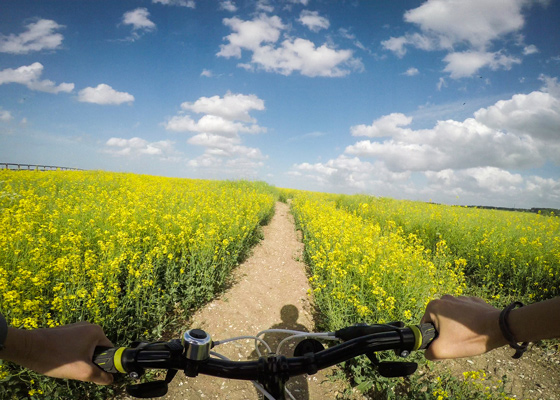Farmers have always been connected to several aspects of a healthy lifestyle. As food producers, we’re closely connected to the entire lifecycle of food, from field to fork. We’re also early pioneers of the concept of community, which happens to be a primary factor for self-reported happiness. But as agriculture has evolved, have we lost aspects of health in our daily lives?
A farm business is only as healthy as its operators and neglecting a healthy lifestyle can result in a vulnerable farming operation and food supply. At the forefront of most health related topics is physical health. “Farmers often consider themselves to be in good physical condition. Most aren’t anymore,” notes Mike Raine, managing editor of the Western Producer.
There are a variety of reasons for this, but many of them boil down to technology, isolation and automation. “City folks often refer to us as farmer strong because we grew up lifting bales or twisting and bending to get under or onto equipment. The farming lifestyle that the country was built on doesn’t exist anymore, and now farmers need to supplement with fitness,” according to Raine.
What’s less obvious to many is the impact that our psychological health has on our overall health. And while COVID-19 has only infected a small percentage of the population, the virus that has infected nearly everyone is the virus of fear. Fear is highly contagious, and farmers aren’t immune.
Whether it’s the fear of getting sick or the fear of losing a family farming operation due to the economic downturn, this fight or flight response to danger has substantial impacts on immune response. There is strong evidence indicating that healthy individuals respond to COVID-19 more favorably than unhealthy individuals. Much of this can be traced back to the body’s psychological state, which affects the body on a biochemical level.
When we perceive stress, the body produces cortisol. Cortisol is the fight-or-flight response hormone responsible for regulating blood pressure and inflammation. During this process the body also produces a less desirable hormone called norepinephrine, what is more commonly known as adrenaline. The impact of this hormone is increased heart rate and blood pressure. In situations of chronic stress, the body is unable to produce cortisol and the result is unopposed norepinephrine. The link between mental and physical response to stress, what’s referred to as “mind-body connection”, is more relevant than ever before.
What’s also less mentioned is how closely related anxiety is to asthmatic symptoms and other respiratory conditions. While mild stress can most often be managed, situations of chronic stress often results in physical ailments later on in life. Our mental state, has significant impacts on how the body responds to physical stress.
A prime example of this is the impact that the human mind can have on the outcome of major surgeries. Research has found that viewing a surgeon in a favourable light can actually have a positive impact on the outcome of surgery. Certainly fear isn’t always a bad thing; doctors can also use this technique to motivate patients to make positive lifestyle changes to improve overall health.
The dominant factor responsible for increased longevity and happiness is not diet or exercise, it’s the feeling of being a part of a community. While farmers have always been community based, they are also incredibly isolated in some circumstances. The possible result of this is loneliness.
Current research suggests the perception of loneliness is the greatest indicator of premature mortality, and isolation can increase this by up to 45%. As humans, we are hardwired to be with other humans and these social connections are one of the greatest indicators of health and happiness.
As humans, we are constantly exposed to threats in various forms. Yet somehow it seems as though we believe our health is something that will be gifted to us. How often does an individual visit their doctor while they are actively working to stay healthy, as opposed to when a significant health-related crisis is occurring?
Arguably, COVID-19 has prompted more people to consider their own health and explore ways to actively improve their lifestyle. And for good reason, especially considering the fact that many farmers take great satisfaction in having the ability to actively farm into their 90’s.
Staying healthy is critical to our world’s food supplies and the sustainability of the family farm. Health is not merely the absence of illness, but a long term strategy to building a more sustainable future. Healthy individuals manage profitable family farms and, as an industry, we need to support this.
If you would like to speak to one of our consultants about this topic contact us.



